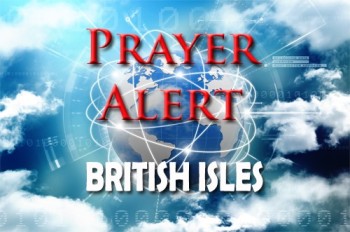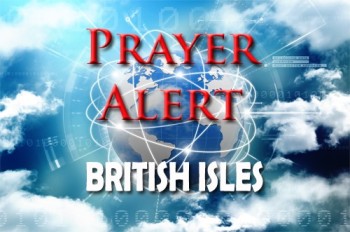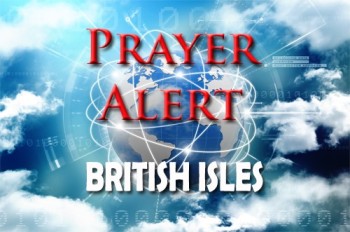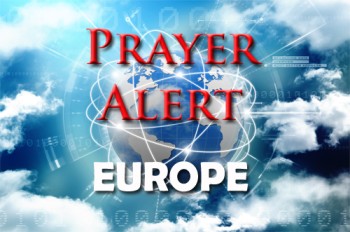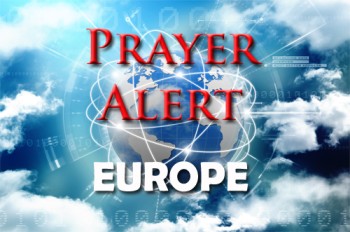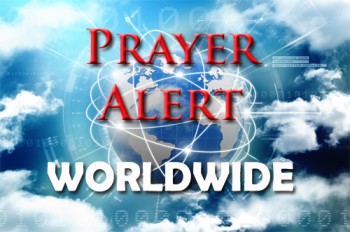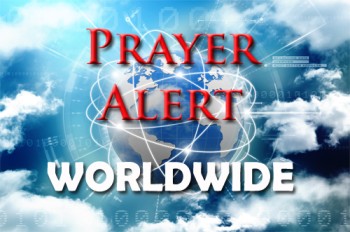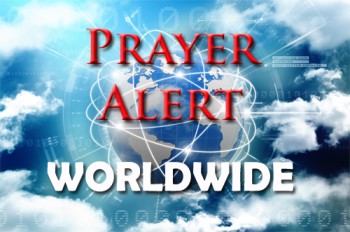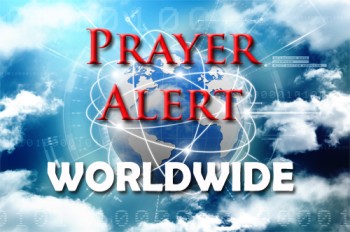Universities seek funding help at start of new term
UK universities are warning of a financial crisis that could lead to significant cuts unless the government takes action. According to the president of Universities UK, the sector is at a 'fork in the road' and risks 'sliding into decline' if funding issues are not addressed. Universities have been facing reduced income from domestic tuition fees, which have not kept up with inflation since 2012, and a drop in international students due to visa rule changes and global financial issues. 40% of universities in England are projecting deficits, and students may see larger class sizes and cuts to staffing and courses. While the Government is exploring solutions, skills minister Baroness Jacqui Smith stated that full state funding for universities is not the answer; she called for a more balanced approach. Meanwhile, union leaders are appealing for increased public funding, but with accountability for how those funds are used, particularly in supporting staff.
Scotland: £500m cuts to public spending
Scotland's deputy first minister, Shona Robison, has announced £500 million in public spending cuts to address financial pressures. The cuts, which span various sectors, aim to balance Scotland’s budget while facing ongoing economic challenges. Robison emphasised that difficult decisions were necessary to manage increasing demands on public services and rising costs. The cuts will affect education, healthcare, and transport, sparking concerns from public sector workers and unions. Critics argue that the reductions could lead to decreased quality in essential services and further strain on already under-resourced sectors. Robison defended the cuts as crucial to prevent long-term financial instability, noting that the government is committed to protecting vital services as much as possible. However, she acknowledged that the cuts were far from ideal and called for a review of how public funds are distributed and used efficiently.
Wales: archbishop urges joint action to solve rivers crisis
Archbishop Andrew John of Wales has emphasised the importance of joint action in addressing the crisis of river pollution. A Church-led summit on river pollution is set for November, bringing together over 70 farmers, water industry representatives, environmentalists, and academics from across the UK. The archbishop acknowledged the complexity of restoring rivers, with competing demands, but stressed the need for cooperation across different sectors. He defended the Church’s involvement in secular matters, emphasising its responsibility to engage with critical issues such as climate change. He also praised athletes in the Paris Olympics, particularly the Refugee Olympic team, as examples of collaboration and mutual support. Archbishop Andrew urged the Church to continue fostering unity and cooperation within its global community and ministry areas. He also encouraged strategic, ambitious proposals for the Church's £100m Growth Fund, designed to support outreach projects over the next decade.
France: migrant deaths in small boats ‘a problem of UK’s making’
The ongoing migrant crisis has reshaped France’s northern coast, especially Boulogne. French rescue workers and officials are witnessing a tragic pattern of migrants fleeing death only to perish in dangerous Channel crossings. While both France and the UK condemn smuggling gangs, their responses differ. British authorities emphasise the criminality of smugglers, but French officials and citizens focus on the migrants’ motives, blaming the UK's loosely-regulated job market as a magnet for desperate people. The smugglers continue to adapt, launching boats from inland and resorting to violence. The French feel burdened by a crisis they see as Britain’s responsibility. Despite its significance, the issue gets less media coverage in France due to its own political challenges. Interior minister Gerald Darmanin continues to call for a new treaty between the UK and the EU; efforts against smugglers alone will not suffice to solve the issue.
Italy: Indian ‘fixer’ faces indictment for exploiting hundreds
An Indian ‘fixer’, Tara Chand Tanwar, is likely to face indictment for a long history of criminal activity. One example concerns Sandeep, from Rajasthan, who was working in Italy but lost his job in 2015. He paid €5,000 to Tanwar for a new job in logistics. However, the job exposed him to exploitative conditions, including twelve-hour workdays, lack of a contract, and overcrowded living arrangements. Sandeep’s fear of losing his residency kept him compliant. From 2012 to 2022, Tanwar used weaknesses in Italy’s migration and procurement laws to implement a system of bribery, blackmail, and mafia-like tactics. His operation funnelled millions through bank accounts linked to forced labour. Tanwar’s influence in Rajasthan, a region with high unemployment, had made him a pivotal figure in arranging jobs for hundreds of hopeful migrants, though he lacked the required licences. Workers were unaware of his illegal status and became trapped in debt.
Gaza: USA files charges against Hamas leaders
The USA has filed criminal charges against Yahya Sinwar, the leader of Hamas, and five other individuals for orchestrating the deadly attack on 7 October which killed 1,200 people, including forty Americans. The charges include conspiracy to support a terrorist organisation, conspiracy to murder US nationals, and conspiracy to use weapons of mass destruction. The complaint alleges support from Iran and Hezbollah. Three of the defendants are believed to be dead, while Sinwar remains in hiding. These charges are part of a broader effort to dismantle Hamas’s operations, but the White House also says it is actively working with Egypt and Qatar on a new ceasefire and hostage deal. In other developments, in Israel there have been three days of huge protests against Benjamin Netanyahu, and the UK government has decided to suspend sale of certain types of arms sales to Israel because they might be used in violation of international humanitarian law.
East Asia: the Pope’s longest-ever trip
Pope Francis, despite health challenges, has embarked on his longest trip as pope, visiting Indonesia, Papua New Guinea, East Timor, and Singapore. In this significant visit, which will cover over 32,000 km, he will aim to strengthen ties with Asian countries where Catholicism is often a minority faith but plays a crucial role in education and charity. The trip also highlights the shift in the Catholic Church’s focus toward Asia and away from a Eurocentric model. In Indonesia, the Pope will meet with Muslim leaders and sign an interfaith declaration, emphasising harmony between religions. Francis will again urge world leaders to take stronger action against climate change, particularly when he is in Papua New Guinea, and in the background there are ongoing efforts to rebuild diplomatic ties with China. This trip demonstrates the Pope’s continued energy - even at the age of 87 - and commitment to global outreach.
Venezuela: arrest warrant for opposition leader draws international condemnation
Venezuela’s decision to issue an arrest warrant for opposition leader Edmundo Gonzalez Urrutia has sparked international condemnation. Canada, the USA, and Brazil have all criticised Nicolás Maduro for his crackdown on opposition members following a contested presidential election in July. He was declared the winner with 52% of the vote but failed to release vote tallies. The opposition have presented records to back up their claims that Gonzalez won. When he refused to testify in an investigation, a warrant was issued for his arrest. Brazil, once supportive of Venezuela, expressed concerns and warned that his detention would be seen as politically motivated. The USA, long critical of Maduro, accused him of extreme measures to retain power. Meanwhile, Human Rights Watch has accused armed groups of killing 23 protesters after Maduro’s victory: see.
Africa: China promises closer collaboration
Liu Yuxi, China’s special envoy for African affairs, says China and Africa are set to strengthen their partnership in response to global challenges, particularly hegemonism and Cold War-era attitudes. He has outlined plans for this week’s Forum on China-Africa Cooperation (FOCAC) summit, which will enhance collaboration in global governance, security, trade, and investment. There will be mutual benefits from this partnership, with Africa's natural resources and growing population complementing China's capital, technology, and development experience. African leaders have gathered in Beijing for the summit, hosted by Xi Jinping, at which China, Africa's largest trading partner, will focus on further cooperation. Liu rejected the idea of Africa being a battleground for major powers, urging the international community to consider Africa’s perspective and support its peace and development.
USA: former government aide accused of espionage
Linda Sun, a former senior aide to two New York governors, has been charged with acting as a secret agent for the Chinese government. She and her husband face multiple charges including visa fraud, alien smuggling, and money laundering. Both have pleaded not guilty and are out on bail. Sun allegedly used her political position to further Chinese interests, blocking Taiwanese representatives from meetings and altering official messaging to favour China, especially during the Covid pandemic. She ensured public praise for China’s ventilator shipments while blocking an effort by Taiwan to get a public acknowledgement for giving masks. Authorities claim she facilitated millions in business deals for her husband’s Chinese-connected company, which funded their luxurious lifestyle. China’s embassy dismissed the charges, pointing out that previous cases against alleged Chinese agents have collapsed. There are growing tensions between the two countries over espionage claims.

